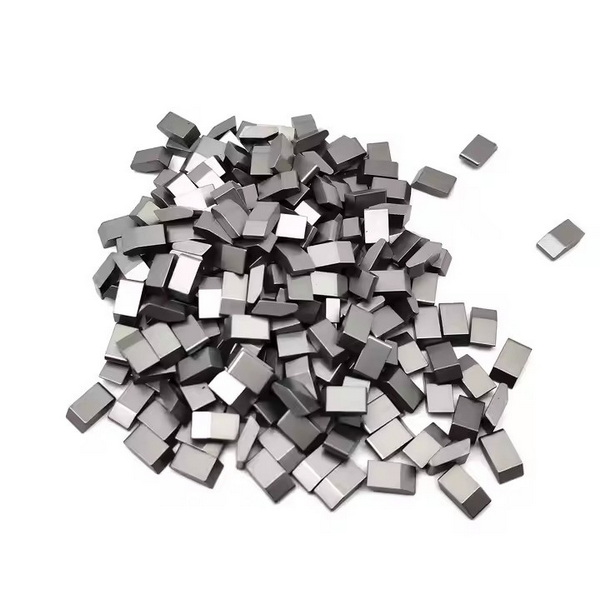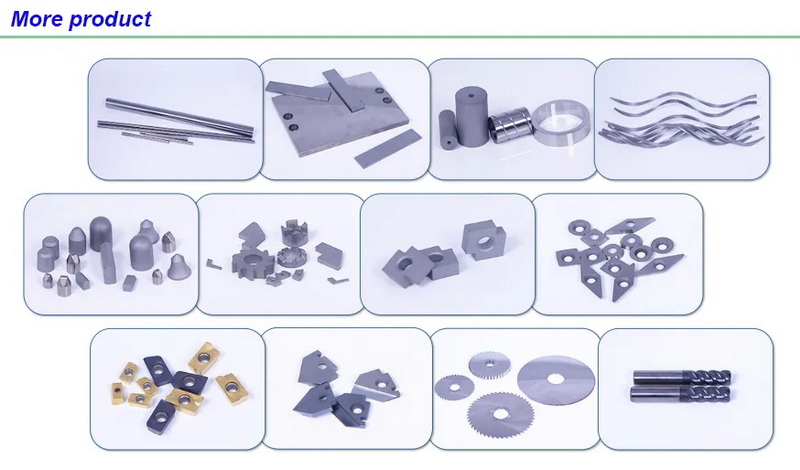Content Menu
● Introduction to Union Carbide India Limited
>> Key Products
● Impact of Union Carbide Products in India
>> Bhopal Disaster and Its Aftermath
>> Economic Impact
>> Environmental Impact
● Union Carbide's Continued Presence in India
>> Dummy Companies and Continued Sales
>> Market Strategies
● Evolution of Union Carbide India Limited
>> Eveready Industries India
>> Acquisition by Dow Chemical
● Legacy and Impact
>> Corporate Responsibility
>> Future Prospects
>> Regulatory Changes
● Conclusion
● Frequently Asked Questions
>> 1. What were the main products of Union Carbide India Limited?
>> 2. What was the impact of the Bhopal disaster on Union Carbide's operations in India?
>> 3. How did Union Carbide continue to operate in India after the Bhopal disaster?
>> 4. What were some of the popular Union Carbide products in India?
>> 5. What happened to Union Carbide India Limited after the Bhopal disaster?
● Citations:
Union Carbide, a multinational chemical and materials company, has a rich history in India, particularly through its subsidiary, Union Carbide India Limited (UCIL). Established in 1934, UCIL was a significant player in the Indian chemical industry, producing a wide range of products that catered to various sectors. This article will delve into the most popular Union Carbide products in India, exploring their applications and impact on the market.

Introduction to Union Carbide India Limited
Union Carbide India Limited was a major chemical company in India, with a diverse portfolio of products including batteries, carbon products, welding equipment, plastics, industrial chemicals, pesticides, and marine products. The company was 50.9% owned by Union Carbide and Carbon Corporation (UCC) in the United States, with the remaining 49.1% held by Indian investors, including the Government of India and government-controlled banks.
Key Products
1. Batteries and Flashlight Cases: One of the most well-known products from Union Carbide India was batteries marketed under the Eveready brand. In a single year, UCIL produced over 504 million batteries in various shapes and sizes. Additionally, they manufactured 6.5 million flashlight cases in different models using brass, aluminum, and plastic.
2. Pesticides: UCIL was also involved in the production of pesticides, including MIC-based products like Sevin and Temik. The company's agricultural products division was established in the late 1960s and expanded over the years, though it faced significant challenges and controversies.
3. Industrial Chemicals and Plastics: Union Carbide India produced a range of industrial chemicals and plastics, which were used in various manufacturing processes across different industries.
4. Welding Equipment and Carbon Products: The company manufactured welding equipment and carbon products, catering to the needs of the metalworking and construction sectors.
Impact of Union Carbide Products in India
Union Carbide's products played a significant role in India's industrial development. The company's operations spanned multiple sectors, contributing to both economic growth and employment opportunities. However, the Bhopal disaster in 1984, involving a gas leak at the pesticide plant, had a devastating impact on the company's reputation and operations in India.
Bhopal Disaster and Its Aftermath
The Bhopal disaster led to a significant decline in Union Carbide's operations in India. The incident resulted in thousands of deaths and widespread health issues, leading to increased scrutiny and eventual legal actions against the company. Despite this, Union Carbide continued to operate in India indirectly through dummy companies for several years after the disaster.
Economic Impact
The Bhopal disaster not only had a profound social impact but also significant economic implications. The incident led to a decline in investor confidence in Union Carbide's operations globally. Additionally, the legal settlements and compensation payouts further strained the company's financial resources.
Environmental Impact
The Bhopal disaster highlighted the importance of environmental safety and regulations in industrial operations. The incident led to a global reevaluation of safety standards and practices in chemical manufacturing. In India, it prompted stricter regulations and oversight of chemical plants to prevent similar disasters.
Union Carbide's Continued Presence in India
After the Bhopal disaster, Union Carbide faced legal and public backlash, leading to a ban on its operations in India. However, the company managed to maintain a presence through front companies. One such example is Visa Petrochemicals Private Limited, which operated as a front for Union Carbide from 1988 to around 2002.
Dummy Companies and Continued Sales
Union Carbide used dummy companies to bypass legal restrictions and continue selling its products in India. This included selling wires and cables, among other products, through these front companies. The use of such tactics allowed Union Carbide to maintain a market presence despite the official ban.
Market Strategies
Despite the challenges, Union Carbide continued to explore new market strategies to maintain its influence in India. This included partnering with local companies and leveraging existing brand recognition to promote products indirectly.

Evolution of Union Carbide India Limited
Over the years, Union Carbide India Limited underwent significant changes. The company's operations and branding were restructured following the Bhopal disaster and subsequent legal pressures.
Eveready Industries India
In 1994, Union Carbide India Limited was renamed Eveready Industries India, marking a significant shift in branding and focus. The company continued to produce batteries and other consumer products under the Eveready brand, distancing itself from the Union Carbide name.
Acquisition by Dow Chemical
In 2001, Union Carbide Corporation was acquired by Dow Chemical, further changing the landscape of its operations globally. This acquisition led to a reevaluation of Union Carbide's assets and operations in India, with a focus on compliance with international safety standards.
Legacy and Impact
Union Carbide's legacy in India is complex, marked by both industrial contributions and the tragic Bhopal disaster. The company's products, particularly Eveready batteries, remain widely recognized and used in India. However, the Bhopal disaster continues to serve as a reminder of the importance of safety and corporate responsibility.
Corporate Responsibility
The Bhopal disaster highlighted the need for corporations to prioritize safety and environmental responsibility. It led to increased scrutiny of multinational companies operating in India and globally, emphasizing the importance of ethical business practices.
Future Prospects
Despite the challenges faced by Union Carbide in India, the company's legacy continues to influence the Indian market. The Eveready brand remains strong, and the lessons learned from the Bhopal disaster have contributed to improved safety standards in the chemical industry.
Regulatory Changes
The Bhopal disaster prompted significant regulatory changes in India, with a focus on enhancing safety measures and environmental protection. These changes have had a lasting impact on the chemical industry, ensuring that companies adhere to stricter safety protocols.
Conclusion
Union Carbide's products in India were diverse and influential, contributing to various sectors such as energy, manufacturing, and agriculture. However, the company's legacy in India is marred by the Bhopal disaster, which had profound legal, environmental, and social implications. Despite these challenges, Union Carbide continued to operate in India through indirect means until its eventual acquisition by Dow Chemical.

Frequently Asked Questions
1. What were the main products of Union Carbide India Limited?
- Union Carbide India Limited produced a wide range of products including batteries, carbon products, welding equipment, plastics, industrial chemicals, pesticides, and marine products.
2. What was the impact of the Bhopal disaster on Union Carbide's operations in India?
- The Bhopal disaster led to a significant decline in Union Carbide's operations and reputation in India. It resulted in legal actions and public backlash, eventually forcing the company to cease direct operations in the country.
3. How did Union Carbide continue to operate in India after the Bhopal disaster?
- Union Carbide continued to operate in India through dummy companies like Visa Petrochemicals Private Limited, allowing it to bypass legal restrictions and maintain a market presence for several years.
4. What were some of the popular Union Carbide products in India?
- Popular Union Carbide products in India included Eveready batteries, pesticides like Sevin and Temik, and industrial chemicals.
5. What happened to Union Carbide India Limited after the Bhopal disaster?
- Union Carbide India Limited was eventually renamed Eveready Industries India in 1994. The company's operations and branding underwent significant changes following the Bhopal disaster and subsequent legal and public pressures.
Citations:
[1] https://www.indiatoday.in/magazine/cover-story/story/19841231-union-carbide-india-sales-dip-after-803532-1984-12-30
[2] https://www.opindia.com/2022/12/union-carbide-sold-its-products-in-india-for-14-years-after-bhopal-disaster-through-dummy-companies/
[3] https://en.wikipedia.org/wiki/File:Union_Carbide_pesticide_factory,_Bhopal,_India,_1985.jpg
[4] https://www.alamy.com/stock-photo/union-carbide-corporation.html
[5] https://en.wikipedia.org/wiki/Union_Carbide_India_Limited
[6] https://pmc.ncbi.nlm.nih.gov/articles/PMC1142333/
[7] https://www.unioncarbide.com/products.html
[8] https://www.panna.org/archive/panna-dow-chemical-union-carbide-and-bhopal/
[9] https://www.unioncarbide.com
[10] https://www.bmartin.cc/pubs/06globalsociety/Chronology.pdf
[11] https://pophistorydig.com/topics/union-carbide-1950s-1980s/
[12] https://www.britannica.com/money/Union-Carbide-Corporation
[13] https://www.instagram.com/rebecca_altman/p/CQD6Dy6h1pN/?locale=es
[14] https://www.gettyimages.co.nz/photos/inside-union-carbide
[15] https://www.nytimes.com/1984/12/11/world/1982-report-cited-safety-problems-at-plant-in-india.html
[16] https://en.wikipedia.org/wiki/Bhopal_disaster
[17] https://websites.umich.edu/~snre492/lopatin.html
[18] https://onlineethics.org/cases/exportation-risk-case-bhopal
[19] https://www.bhopal.com/uc-india-limited-history.html
[20] https://kids.britannica.com/students/article/Union-Carbide-Corporation/313938
[21] https://www.bhopal.com/bhopal-plant-history-ownership.html
[22] https://en.wikipedia.org/wiki/Union_Carbide
[23] https://www.bbc.com/news/articles/cp35vlg3zvxo
[24] https://www.theatlantic.com/photo/2014/12/bhopal-the-worlds-worst-industrial-disaster-30-years-later/100864/
[25] https://www.motherjones.com/environment/2014/06/photos-bhopal-india-union-carbide-sanjay-verma-pesticides-explosion/
[26] https://ijalr.in/volume-3/issue-2/union-carbide-corporation-vs-union-of-india-etc-prajwal-verma-suhani-gupta/
[27] https://www.ou.edu/deptcomm/dodjcc/groups/02C2/Union%20Carbide.htm
[28] https://www.bhopal.com/document/browning.pdf
[29] https://corporate.dow.com/en-us/about-dow/company/issues/bhopal/tragedy.html
















